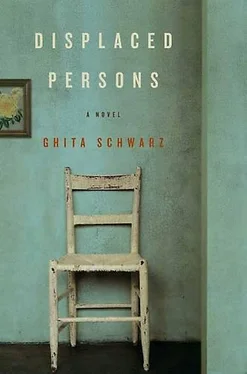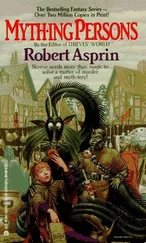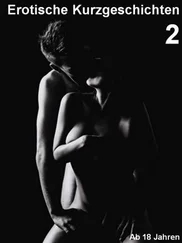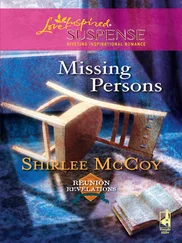Finally Fela spoke. And you? You are such a good-looking man. So kind, decent.
He said nothing.
She waited, then said it directly. You too, perhaps, are looking?
No, said Pavel. Not-there was-but I already know what happened. I look only for my brothers and sisters.
He did not look at her face, busying himself instead with his bread. They finished their meal in silence and mounted their bicycles again, Fela in front so he could watch as she rode. Why should anything change? She would look, perhaps she would find. He still could protect her while things remained this way.
He pushed his legs forward on the pedals and watched her hips on the frame ahead of him. He still could protect her. Already he had found a use for another gold chain. A little woman in the British camp knew how to counterfeit American identity cards. He could expand his business, give Fela what she needed to make a nice home, and then they would see what they would see. Already the zones were tightening, the paperwork to cross each border and enter each new town growing thicker and more complicated. Today he would pick up the American papers to add on to the British ones. He could go back and forth, do business in all zones, American, British, even Russian. He was making new connections. Only last week he had brought a truckful of provisions into the camp and left half with the refugee camp hospital, then sold what remained to the Germans for clothes, hats, jackets, and a wallet. A citizen of the world! He laughed to himself, but Fela did not turn around. Liberated, but not free. That was what they said in the camp, the slogan the refugees used to build organization, to argue for visas, for Palestine, for graves. A young woman, but she too was not yet free.
A few meters ahead of him, Fela’s light hair blew slightly, restrained by the scarf she had tied around her head. Yes, she was a lady.
September-October 1945
P AVEL WANTED TO THROW himself into something that would make him full. The trading was not enough. He tried to busy himself by attending the committee meetings of the Jews in the camp. The men had noticed that the younger refugees, the boys of fifteen or sixteen, were terribly ignorant. Could not they begin classes of some kind, something to make up for the time these children had lost? Were there no teachers among the survivors? Someone had volunteered to make a search some days before, and Pavel had not paid so much attention. But as he cycled with Fela home from the camp, he had an image of himself sitting with Chaim in their garden, teaching him all that he knew. Three days later, Pavel presented the boy with a stack of papers fastened with a clip.
Chaim, he said, blowing on a cigarette after his coffee. How old are you?
Ah, said Chaim. Fourteen or fifteen, I believe.
You believe? said Pavel. You look younger. Don’t you remember when you were born? Let us see-in 1939, were you-
Pan Pavel, said Chaim, no. You are right. I am fourteen, and my birthday will be next May.
And what of your father? He put you in kheyder , of course? How long was it before you were-
No, said Chaim, suddenly flustered. We-I went for some time, but-we-my father-he believed in the Bund-
But Pavel had already made his decision. Whether Chaim was a good student or no before, now things would be different!
Chaim was stammering. It’s that our family was not so-
All right, Pavel interrupted-everyone had secrets to keep, and who was Pavel to interfere with a child’s desire to hold his past to himself? All right. Well, in any case, it is the time, a little late, of course, but around the time, that you begin to prepare to become a bar mitzvah. It’s time to learn. I suppose you learned something in your family of Hebrew, even without-
Something, said Chaim, softly. A little, I could recognize, of course, but not-
Not enough, no. Never enough. I’ll teach you, my friend. Nothing to be ashamed of. In fact, Pavel lied, I was very slow with Hebrew myself.
CHAIM SAT DOWN TO Fela’s dark bread and soup of boiled meat. He would not look at Pavel. He would eat slowly, in silence. Still his body began to feel heat, as if it knew a discomfort and pain were coming. Why should Chaim obey? He bent to his soup, taking each sip like a medicine. He felt a needle begin to move inside, ready to become a knife, thrusting inside him, carving names into his guts. He would not look at Pavel, but when he glanced at Fela he saw her eyes turn down to her plate, afraid to meet his gaze. A twinge of shame pushed through him, then an ugly gratitude that made him angry. Who were these people to him, making a false family, false home? Who were they? He had a sudden image of the raincoat that Pavel had brought home for Chaim, a proud trade he had made, and Chaim wanted to leap up from the table and slash the coat into tiny pieces, until nothing remained but a pile of collar, pocket, useless squares of cloth. There was only so long he could contain his fury.
The soup trickled into his stomach. He took an English class each week, but it was not enough to give him a purpose or an escape. Perhaps a routine would help him leave the house, make his own life. He had inquired, without real interest, into work or training, among the aid workers. Perhaps that was his way out.
AFTER A MONTH IN the camp print shop Chaim accustomed himself to the operation of the large and ancient ink machine that rolled out the camp newsletter, little stories reviewed by the soldiers to ensure they carried no news of riots, protests, arrests. Death notices of the refugees were permitted. Also lists of names of the living, announcements of departures. Bundles of young people had already been let out to temporary homes in Britain and France, to be rehabilitated until-but until what no one yet knew.
His hands turned a dark blue-black every evening as he read through the lists before the ink on the pages was dry, the names rubbing off on his clothing and skin. Each week young men and an occasional young woman or two gathered in the early evenings outside the shop to pick up the new pages, skipping over the drawings on the front page, the poems on the second page, fingers running up and down the lists, eyes squinting, hands folding the short pages and then reopening, rereading. He watched them searching for a last name that meant something to them, a town in which someone had a cousin, a patronymic that sounded like a past neighbor’s, borrowing pens from one another as they circled clues.
He continued to attend his English class in the children’s school barracks, and Chaim left his post early on Tuesdays to make sure he found a seat close to the front of the room. One evening a man from the print shop came trotting after him as Chaim crossed the threshold. A young woman named Rayzl Traum had submitted an advertisement to the camp paper. The printman had written the advertisement and stopped at the last name, questioned her. She had a young cousin Chaim before the war.
The children were finishing their lessons, the teacher outside the room, waiting as they wrote the last sums of the day. From the doorway Chaim saw the small ones copying the scrawls from the blackboard into their slim notebooks. Then he turned his face to the printman’s feet, his heavy brown shoes.
I had a cousin Rayzl before the war, Chaim answered.
HE REMEMBERED HER. RAYZELE. Now she was plump, filled with a rageful kind of cheer, another one who wanted to blot out the past, march forward. Their fathers were brothers. She held him close to her chest and breathed into his hair when she saw him.
They sat on a bench near the print shop, and he waited for her to tell him what she knew. But she did not say a word, instead looked at him directly in the eyes, as if to send out her message without speaking. Perhaps she waited for him to ask. But he did not want to know. Perhaps it was a family trait, to know and not to say, to write quietly in notebooks, as his father had done in his job as a translator-was that his job?-yes, of course, he had tutored Chaim in the Yiddish letters before Chaim could understand the words he read, of course that was his work, was Chaim forgetting these things already?
Читать дальше











